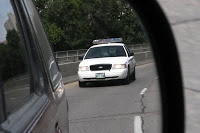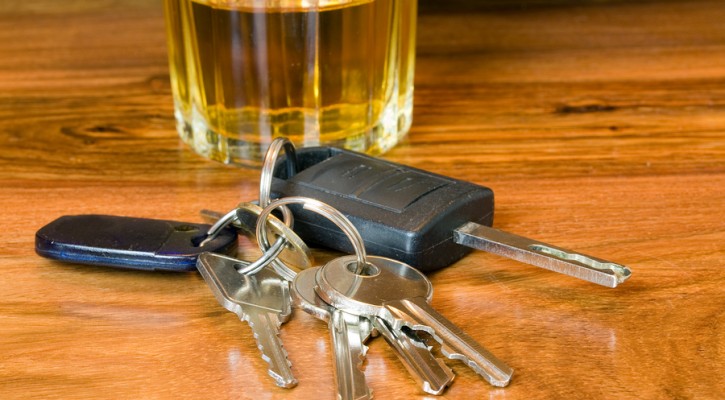Monthly Archives: November 2010

Answering Driving Questions from Yahoo! Answers: Florida Traffic Ticket Edition
November 24, 2010
Yahoo! Answers is a great way to get your questions answered through the large community of Yahoo. In this series of articles, we will tackle questions that are asked on a weekly basis about driving in Florida. We will focus on traffic tickets for this article. Whether the question is on the ticket itself or on the process of receiving a ticket in Florida and finding out your available options, these are some of the most frequently asked questions about traffic tickets and their answers. Odds are you’ve probably come across these questions or variations on them.
Q. “Should you wait for the mail notification before you do something about your ticket?”
A. No. Any Florida driver that receives a traffic ticket, including a speeding ticket, has 30 days to select an option for satisfying their citation. One way for a driver to determine what their options are for satisfying a pending ticket is by checking the website of the county where the citation was received. Offenders can accept the points on their licenses, request a court date, or, if eligible, attend traffic school to prevent points from being assessed on their license.
Q. “When you opt for traffic school, does it remove points from your driving record? Do you still have to pay for the ticket?”
A. If the option is available for a driver after receiving a traffic ticket and they are eligible, then traffic school will prevent the points from being applied to an individual’s driving record. And yes, the driver still has to pay for the ticket.
Q. “If I get a ticket while visiting another state, will it apply in my home state?”
A. Yes. Though different states have their own DMV office, a driver’s home state DMV will be notified if a ticket has been issued from a different state. What will usually happen is the driver will be required to settle the ticket in the county where the citation was originally from. The penalties that will apply will also refer to the laws from the state where the ticket was received. Including traffic school: if the driver elects to attend traffic school to clear the points, he will have to attend one that the county where the ticket was issued will accept.
While most people want to avoid a traffic ticket, it is helpful to know a little bit about how the process works. Remember it is best to take care of a traffic ticket early. Failing to pay for a traffic ticket, or not completing the requirements of traffic school will cause your drivers license to be suspended and can cause warrants for your arrest.
Learn more about Florida online traffic school to dismiss your traffic ticket.

Preventing Underage Drinking and Driving
November 22, 2010
Underage drinking should and does pose concern for parents. Combine drinking with teens who are receiving their learner’s permits or full operators license and you have a recipe for disaster.
For parents and guardians, it will be up to them to make sure that they set the parameters and guidelines to keep their teens safe at all times. But doing so without imposing too much control and giving away too much freedom is essential. Otherwise, teens may make the wrong choices when faced with decisions, they may soon regret.
So what can be done? What can be done to help a teen from getting into preventable bad situations?
There are a few steps parents can take, including:
Get to know the parents of the teen’s friends – Acquaint yourself with the parents of your teen’s friends. Make sure you are on the same wavelength when it comes to what your expectations and parameters are for your teen. Also, treating your teen’s friends with respect or as if they are family will make them think twice before trying something irresponsible. If another parent isn’t too concerned about underage drinking, put out facts. Never argue, instead, share your concerns and the reason you have them, along with the facts and statistics on underage drinking and how it affects the teenage brain. Once they understand the science and statistics, hopefully they will change their minds.
Hide/Lock up the alcohol – Remember, out of sight, out of mind. Don’t make it easy for them to find alcohol and be irresponsible. Ask the parents of your teen’s friends to do the same. Homeowners and other adults can be held liable for what occurs in their home whether they were present or not. Be prudent and not an enabler for reckless teen behavior.
Be the example for them to follow – Be consistent in your message. Never break the rules you make or take part in illegal, unhealthy or dangerous substances or activities. Your actions are the most powerful message to your teen of what is acceptable in your family.
Limit teen driving times and vehicle access – Create and follow a parent-teen contract. Give them limits as to when they can drive a vehicle and how often they can use it. Check in often with your teen. Be sure you know how to reach them. Know where they’re going and ask whether anyone will have alcohol and if adults will be present.
Support the law – Most of the underage drinking laws have made bars and liquor establishments responsible for whatever damages an underage customer might do or incur. They are also likely to have their licenses for selling revoked, if proven to be selling to minors or someone with fake ids. Law enforcement is also cracking down on the makers of fake ids, and violators are given harsh penalties if proven guilty.
Install an anti-distracted driving mobile application – Most of these apps are designed to combat distracted driving, but they can also be used to set safe driving zones, and can alert you if a teen is going over a certain pre-approved point, like, say, a bar or known trouble area. It could also help prevent your teen from getting into a distracted driving crash.
Talk to your teen – Have a straight-up conversation about the effects of drinking and the dangers of drinking and driving. Make sure they understand the penalties, how it reflects on their legal and driving records and how that might affect them in the future. Tell them of your family’s history of alcohol and drug use, since there is a genetic predisposition towards risk of addiction. Be alert and ready to talk with your teen, when they come in at night. Ask them about how their evening went and be prepared to tackle what they share with you. Having an open conversation and understanding with teens can often do wonders for both the teen’s safety and their relationship with their parents.
Recognize and praise them when they have been responsible and demonstrated good judgment. Together with other concerned parents, many crashes that happen during the teenage years can be prevented. Be concerned and vigilant, but not overprotective. Teen drivers may seem like they are maturing to adulthood, but they are not quite there. Balancing expectations with responsibility and implementing precautions, will help to avoid the dangers of underage drinking and drinking and driving.
Learn more about Technology to Prevent Drunk Driving at the National Safety Commission.
Teen Driver Safety Devices
November 9, 2010
No matter what rules or boundaries a parent may set for their teen driver, once that teen is out of sight, the parent has to rely on trust and faith that the teen will obey those rules. However teens are teens and a multitude of outside influences can act on them to prevent their adherence to the rules. Fortunately, there are new technologies and driver safety devices available that can allow a parent to monitor their teen’s driving habits and whereabouts at all times.
Here are a few of the existing technologies that help give parents peace of mind:
Sprint’s Family Locator / Verizon’s Chaperone – http://sfl.sprintpcs.com/finder-sprint-family/welcome.htm / http://products.verizonwireless.com/index.aspx?id=fnd_chaperone, additional charges to monthly plan
Teens always have their cell phone with them and, if the teen is using a Sprint or Verizon phone, there are extra services available that allow a parent to track their teen’s location via a phone or computer. This allows a parent to monitor whether or not the teen is where he or she said they would be.
The Determinator Ignition Interlock Device – http://www.stopdwi.com/, $1,595 + shipping and installation fees
This breathalyzer interlock system will prevent the car from starting if the teen’s Blood Alcohol Level is above the legal limit. While expensive, this device guarantees that a teen can never drive drunk and that peace of mind may be well worth the investment..
DriveCam: Teen Safe Driver Program package – http://www.drivecam.com/, $899 plus monthly fees/FREE if insurance is covered by American Family’s auto insurance
This in-car camera system records “risky driving behavior”and sends them to DriveCam for third-party assessment of a teen driver’s skills. The reports are then sent to parents, who can discuss the driving behavior with their teen. Cars insured with American Family’s auto insurance may sign up for the Teen Safe Driver Program, which offers the device/service for free. American Family also claims that footage taken from a car will not be used as evidence and belongs to the purchaser.
CarChip Pro – http://www.carchip.com/Products/8226.asp, $119
CarChipPro is essentially a black box which, once the information is downloaded, provides parents with a history of the teen’s driving. The system may also be set to turn into an alarm if certain speeds are reached or if the driver is braking too hard. Like DriveCam, it is a tool to help discuss a teen’s driving habits by allowing parents to show them the facts, and how to correct their driving behavior.
MyKey – http://media.ford.com/article_display.cfm?article_id=29172, only available for Ford models manufactured in 2010
First seen on the 2010 Ford Focus, the MyKey system is designed to help parents set certain limitations on their Ford vehicles for when their teens are driving. With the configurable key, this system is designed for parents who share their cars with teen drivers.
The key features are:
- Speed Control, limiting the top speed of the Ford vehicle to 80 mph.
- Volume control, which allows parents to set a maximum volume level for the car’s radio.
- Beltminder, an alarm system that mutes the radio and plays a chime every 6 seconds, every minute or every 5 minutes when the seatbelt is unbuckled.
- Fuel reminder: alerts the teen that they need to refuel, when fuel is low.
No matter how good these technologies are, they still aren’t as effective as firm rules and boundaries set up by parents who provide a good driving role model for their child. Studies have shown that teens, whose parents have set clear boundaries and follow up with enforcement, have a safer driving record than those teens whose parents don’t set firm rules or who provide a poor role model for safe driving. Parents who want to start such a dialogue with their teens should consider a parent-teen contract before their child begins to drive on their own.
